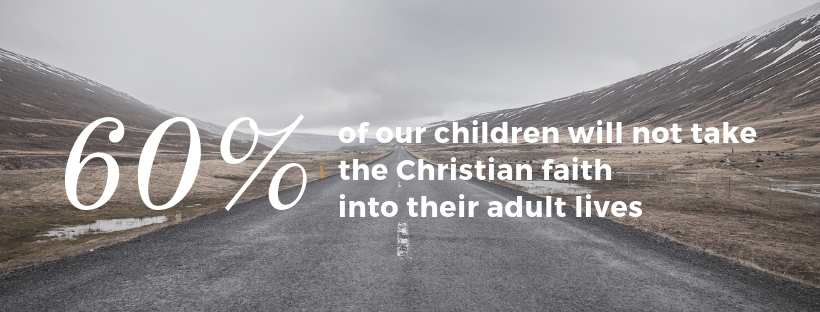The 60% Problem
We work hard to sow the seeds of faith in the lives of our children and “train them up the way they should go.” We take them regularly to worship and Sunday school. Read Bible stories to them. Pray with them. Baptize them. Send them on youth mission trips. And, yet, 60% of our children will not take Christian faith into their adult lives. Why?
We are raising young Christians in a culture that has been and is increasingly shaped by science. Unfortunately, and unnecessarily, the perception of conflict between science and biblical faith 1) is a stumbling block in the faith formation of our children and 2) contributes to the dropout problem seen in young Christians ages 18-29.
Questions about how faith and science fit together begin at very early ages and many children have an impression of conflict between science and religion by the age of 11.1 The eventual resolution to this cognitive dissonance can be the rejection of faith, or science, altogether. After the age of 15, 60% of our children will disconnect from church life and faith.2
We now understand how the dropout problem in young Christians is related to conflict between science and biblical faith. Two of the top reasons young people report for “dropping out” are their perceptions that churches are antiscience and unfriendly to those who doubt/ask questions.2
But, this is much more than a “dropout problem”—it is a spiritual crisis that likely has been and is contributing to the epidemic rise in anxiety and depression that we’ve seen in recent decades as we’ve watched participation in organized religion decline. Religious communities have been doing spirituality for a long time and with great success.3 Spirituality is a source of resilience and thriving for young persons, and a buffer against the most prevalent forms of suffering and psychopathology including risk-taking behavior, depression, substance abuse, and severe affective disorder.3 Not only is spiritual development a significant factor in reducing these risks—it is the “only thing that science has shown to reliably predict fulfillment, success, and thriving”.3
So, our missional challenge is clear…. We must help our children experience the harmony between science and biblical faith beginning in early childhood—emphasis on early—before the perception of conflict sets in. How, you ask? Read on…
1http://biologos.org/blogs/chris-stump-equipping-educators/new-approaches-to-communicating-science-and-faith-to-children
2 You Lost Me. Why Young Christians Are Leaving Church… and Rethinking Faith by Dave Kinnaman (2011)


